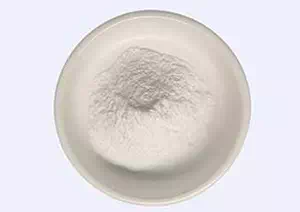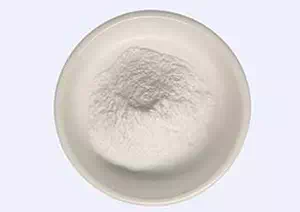What is Kojic acid CAS 501-30-4?
Kojic acid (CAS 501-30-4), as a multi-domain functional compound, has the following core values and usage suggestions:
Efficacy advantages:
Whitening benchmark: Low concentration effectively inhibits melanin, compound system enhances stability;
Green anti-corrosion: It replaces nitrite and has both color protection and antibacterial functions.
Safety boundary:
The addition amount of cosmetics should be ≤1% to avoid the risk of high-concentration sensitization.
Food applications must strictly comply with GB limits (for example, smoked meat ≤0.6%).
Industry trend
Upgrade of biological fermentation technology: Gene-edited strains increase yield and reduce production costs;
Derivative development: Kojic acid dipalmitate (cosmetic grade) enhances light stability.
Kojic acid CAS 501-30-4 Use
Cosmetics (Core ingredients for whitening)
Mechanism of action: Chelates the copper ions of tyrosinase and inhibits melanin production (0.00142% concentration can inhibit 50% of the enzyme activity).
Application form:
Addition concentration: 0.1-1% (safety limit for resident products), combined with SOD and plant extracts for enhanced efficacy.
Product types: Whitening essence, Sunscreen, freckle-removing Mask (effective for freckles and chloasma).
2. Food Industry (Preservatives and antiseptic agents)
Preservative: Broad-spectrum antibacterial (stronger than sodium benzoate), wide pH tolerance, thermal stability, 0.1-0.6%.
Preservative: Inhibits enzymatic Browning of fruits and vegetables (such as apples and mushrooms soaked in 0.1% solution), delays the loss of vitamin C, treated with 0.1% solution.
Color development and protection agent: Replace sodium nitrite to maintain the color of smoked meat, inhibit the formation of nitrosamine carcinogens, 0.25-0.6%.
3. Medicine and Agriculture
Medicine
Anti-inflammatory: Inhibits hyaluronidase (inhibition rate 86.9% at 0.1% concentration).
Anti-cancer potential: As an antifungal sensitizer, it reduces the dosage of chemotherapy drugs.
Agriculture: Biopesticides: Chelate insect phenol oxidase Cu²⁺ to kill diamondback moth and cotton bollworm.
Yield-increasing micro-fertilizer: 0.5% - 1.0% foliar spraying promotes root development and increases the fresh weight of vegetables by 100%.
Kojic acid CAS 501-30-4 safety
1. Carcinogenicity doubts
WHO classification: Group 3 Carcinogens (Insufficient evidence to classify).
Experimental conclusion:
Long-term oral administration of high doses (> 1%) in mice may induce thyroid tumors, but there is no clinical evidence in humans.
Oral LD₅₀ in rats was > 5,000 mg/kg (actually non-toxic).
Service
* Prompt reply and 24 hours online, professional team to provide best price and high quality product.
* Sample testing support.
* Every batch of products will be tested to ensureits quality.
*The packing also can be according the customers` requirment.
*Any inquiries will be replied within 24 hours.
*we provide Commerical Invoice, Packing List, Bill of loading, COA , Health certificate and Origin certificate. If your markets have any special requirements, let us know.







